With Phase I registration in progress, SLS would like to highlight three exciting affiliated courses! HTS 2803 HP: Semester in the City: Engaging Westside Communities, Instructor: Todd Michney; BIOL 2336: Ecology Lab, Instructor: Emily Weigel; CHEM 4833/8833/ChBE 4803/8803: Fundamentals and Challenges for a Sustainable Chemical Enterprise, Instructor: Elsa Reichmanis. Check out these courses, and the rest of our Spring 2018 course offerings on our Courses page
HTS 2803 HP: Semester in the City: Engaging Westside Communities Instructor: Todd Michney
*Offered Spring 2018
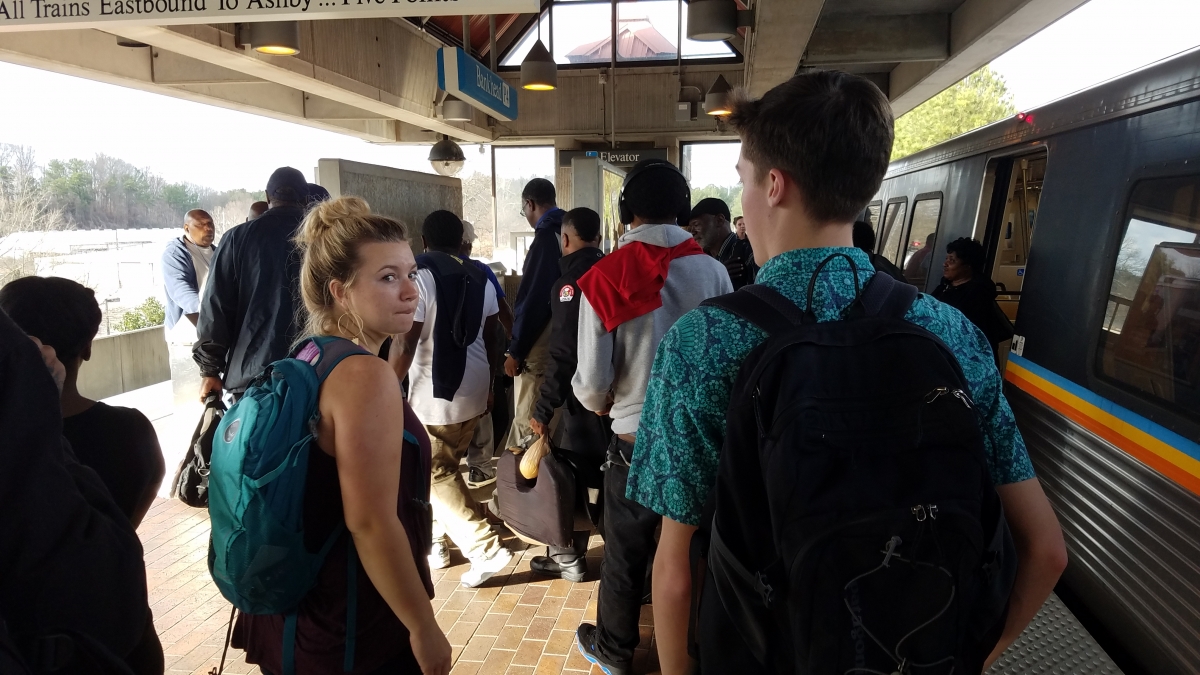
Atlanta’s Westside African American communities have historically demonstrated sustainability, yet also have been subjected to forces pushing living conditions toward unsustainability. In the Jim Crow (segregated) cityscape of the early twentieth century, black residents were left little choice but to settle in low-lying areas having poor drainage and often located close to industrial facilities; nevertheless, they grew some of their own food as well as built their own houses and churches, plus experienced well-meaning reforminitiatives sponsored by individuals and institutions like nearby black colleges and settlement houses.
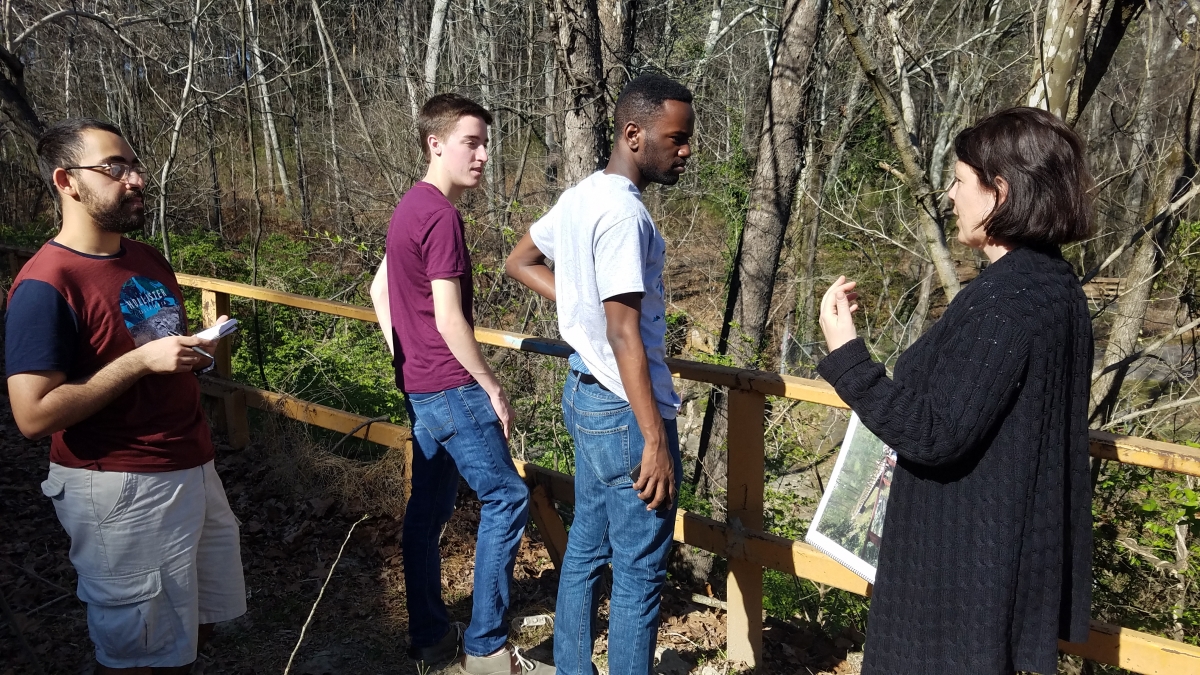
Starting in the 1930s, city planners targeted Westside neighborhoods for extensive demolitions in order to build public housing, highways, sports stadiums, convention facilities, and other uses that often provided little direct benefit to residents; however, such projects did spark active rounds of grassroots community organizing. Starting in the 1960s and becoming acute by the 1990s, larger metropolitan-wide forces such as the departure of more affluent residents, job loss, the drug trade and mass incarceration have made for serious challenges, but also pushed local activism in new directions and raised possibilities of partnerships with external institutions including Georgia Tech.
A strong theme of “Semester in the City” is to identify the historic and present forces that have fostered inequitable access to resources, as well as unfavorable living conditions at the local level; working with organized residents, we will then explore strategies and initiatives to redress past environmental, social and economic inequities which can promote and restore the sustainability of these neighborhoods over the long term.
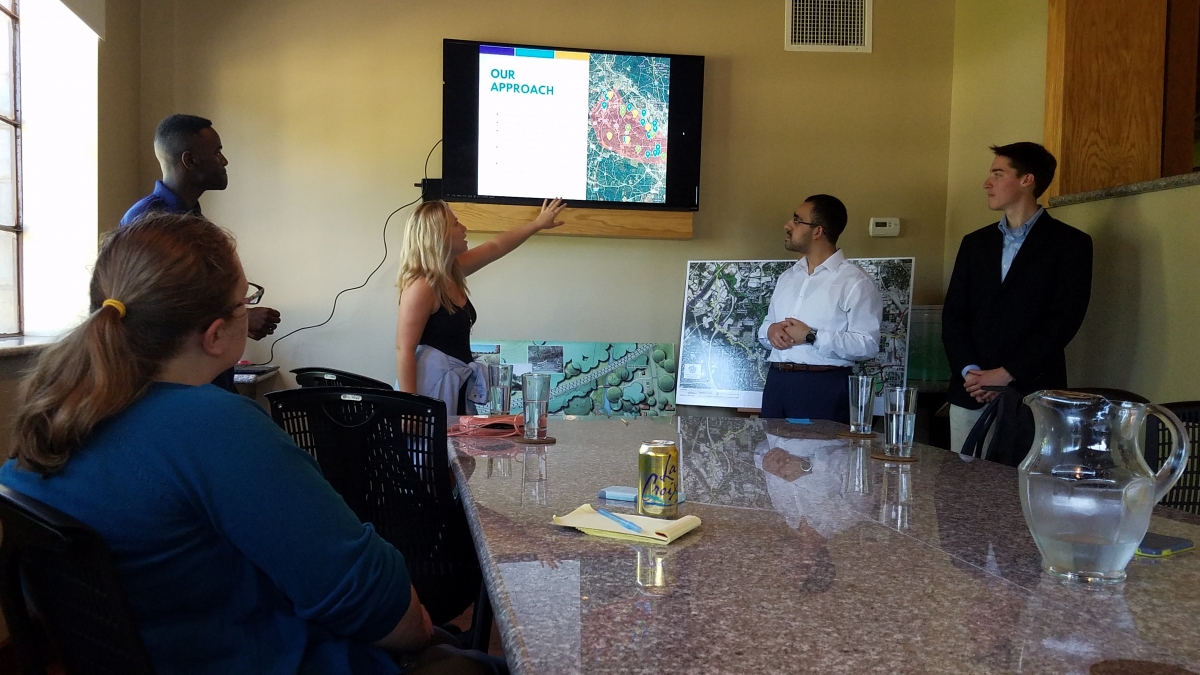
Our community partner, the Grove ParkFoundation, strives to reengage marginalized and economically disadvantaged residents, empowering them to design effective new approaches, identify potential allies, and strengthen their connections to civic actors. The students in “Semester in the City” develop civic leadership skills in the process of meeting individuals whose life experiences most likely differ from theirs, heightening their awareness even as they leverage available resources and apply their talents in a collaborative project. Students come to a fuller understanding of the issues facing, and the approaches pursued by Westside community residents in attempting to maintain the livability of these neighborhoods.
BIOL 2336: Ecology Lab Instructor: Emily Weigel
*Offered Spring 2018
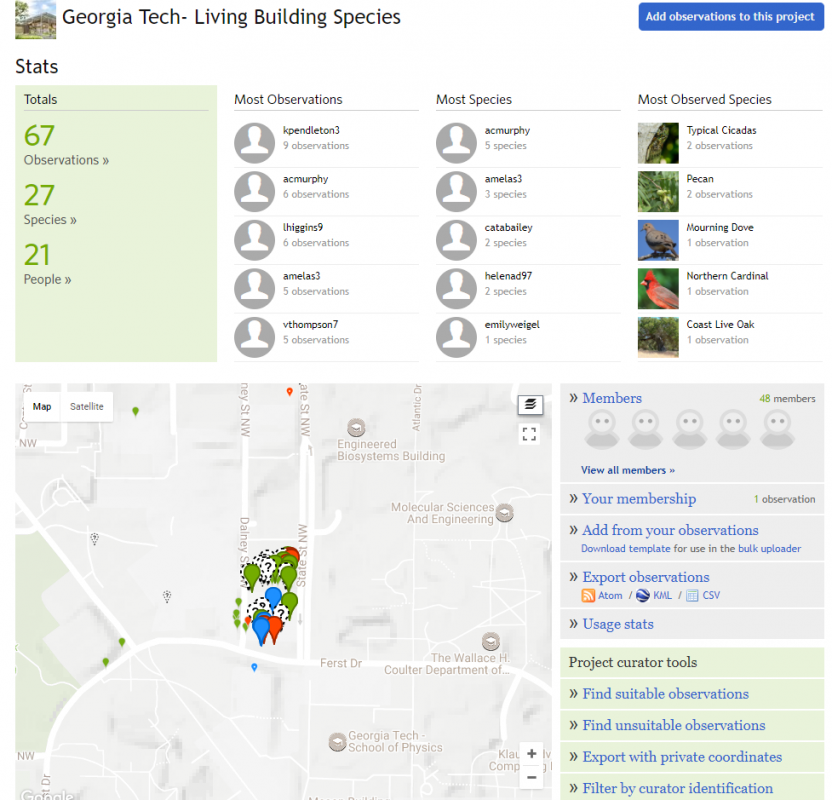
Ecology is the study of interactions between organisms and their environment across multiple scales of time and space. In Ecology lab, you’ll explore these interactions through ecological investigation on several scales, and examine how the science of ecology contributes to the sustainability of human communities.
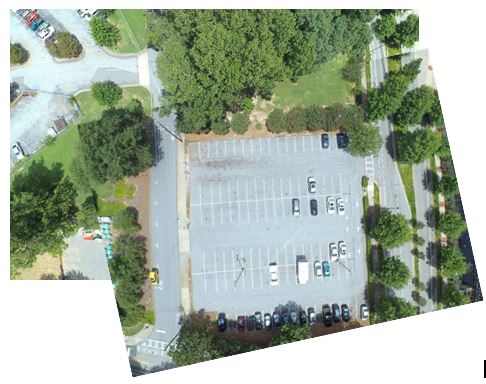
As a part of the lab, you’ll not only learn concepts and quantitative tools used to examine interactions in the natural world, you’ll actually contribute to datasets to better understand the ecology of Georgia Tech. Students will monitor seasonal changes in Tech’s award-winning arboretum, and catalog the biodiversity found on Tech’s campus.
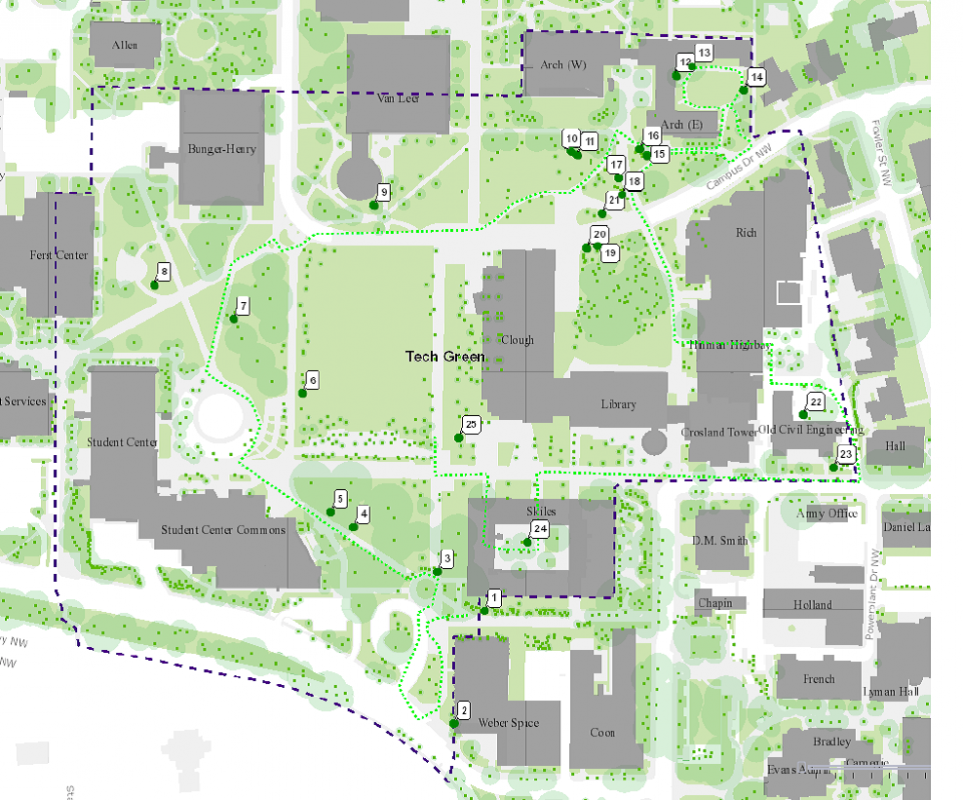
Students will use GIS data to locate and document organisms through the latest updates of the app iNaturalist and aerial photographs taken as the Living Building is built; this allows us to determine how Tech’s ecology changes as we build Students will then apply what they’ve learned across the semester to work with federal government scientists and community members to collect data for the restoration of the watershed in which Tech finds itself: Proctor Creek. Finally, students will use these experiences to practice scientific communication with the public by presenting their ideas on how to sustain and build on local ecology.
Fig 1- Dashboard for the Living Building Species Identified in Round 1. Note that the students across all sections found evidence of 61(!) species, not just the 29 here! Great job!
Fig 2- The Campus Arboretum Weekly Data Collection is Based Partially Around the Numbered Trees Above. Fig 3- Aerial photographs of the future site of the Living Building allow us to measure changes in tree canopy cover and overall green space.
Fig 3- Aerial photographs of the future site of the Living Building allow us to measure changes in tree canopy cover and overall green space.
CHEM 4833/8833/ChBE 4803/8803: Fundamentals and Challenges for a Sustainable Chemical Enterprise Instructor: Elsa Reichmanis
*Offered Spring 2018
In the chemical enterprise (industry, government, and academia), chemists and chemical engineers are involved in, and responsible for, the development of new products, materials, and manufacturing processes. These activities include developing manufacturing processes that are environmentally friendlier, safer for workers and society, and economically more sustainable. They participate in and contribute to all segments of the supply chain, from cradle to grave (nature back to nature). In the industrial sector, they work hand in hand with other engineering professionals, and professionals from business, intellectual property, and environmental safety and health. Thus, it is critical for chemists and chemical engineering students to better understand the grand challenges of industry and to be better prepared to contribute to the long term sustainability of the enterprise. This course provides an introduction to these issues. As the modern chemical enterprise typically employs multidisciplinary teams to collaboratively solve complex problems, this course makes use of team based collaborative projects.
Read more about the course's Spring 2017 pilot class outcomes here!